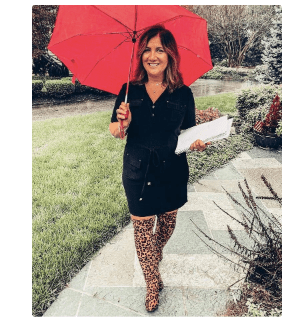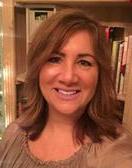I worked in baseball for a while. My husband works in baseball now. We talk a lot of baseball in our house. My friend, Julie, was the one who told me to write a book about baseball, both of us having worked in the sport. And while the novel is set in professional baseball, the themes of the story revolve around loss, allowing yourself to love again, and finding the right person to love. Baseball Girl was my second novel, and the protagonist, Francesca Milli, becomes entangled in a love triangle at work with a ballplayer and a sportswriter. The novel is NOT about a girl who plays baseball; it is about a girl who works in professional baseball. Throughout the novel, as she discusses the death of her father, something she is grieving over and is struggling with daily, she shares flashbacks of conversations she had with her father. Today, I am sharing one of these conversations that is found on the pages of Baseball Girl. I also read this snippet aloud at a recent book event, so it made me want to share it.
Strike Out
Little Dave Unger used to come and knock on my door to play ball. He knew I loved baseball as much as he did, and he didn’t mind that I was a girl. He’d show me his trading cards and his pennant collection, and sometimes, if he went to the game and got an autograph from a player, he would get one for me too. He was a good friend.
That was until I struck him out during the neighborhood kids’ game on July Fourth. All the families in the neighborhood got together at our local park for an elaborate picnic, replete with baseball, hot dogs, apple pie, and illegal fireworks. It had become tradition that there would be a game for kids, with an adult game to follow.
Somehow, I got talked into pitching an inning.
I didn’t know why, because I wasn’t a stellar pitcher. I was more comfortable playing outfield. I could run pretty fast for a girl, and had better than average agility. I could anticipate where the ball would go, and get there to make the catch. Pitching, on the other hand, was just unnerving. I always believed the toughest job on the field was that of the pitcher. It was constant stress, and it required consistency, something I wasn’t typically good at achieving. Throw the ball over the plate, I would tell myself. Focus and pitch. It’s not that hard.
But it was. Pitching was hard. It was tough work.
Little Dave Unger came up to the plate. I thought it was ironic that people put “Little” in front of his name, because Dave was anything but little. He was a big kid, the biggest on his team, and definitely one of the largest sixth-graders in school.
Little Dave Unger stepped into the batter’s box. I pitched to him.
Strike one. Looking.
I pitched again.
Ball one.
I pitched again.
Strike two. Swinging.
I pitched again.
Strike three. Looking.
Little Dave Unger threw his bat down and marched off into his team’s dugout, making the last out of the inning.
He never talked to me after that.
When my father asked why Little Dave didn’t come around any more, I told him I thought it was because I struck him out in the game.
My father told me not to worry, that boys don’t like to be shown up by girls, and that it takes a big man not to let it bother him.
“You were just doing your job,” my father said to me when I couldn’t understand how someone would dismiss me because of something so trivial. “People hold grudges all the time, Frankie. You’re right. You had a job to do, and you had to do it the best you could. Don’t ever sacrifice your own integrity, talent, or brains to make someone else look better. You just have to be who you are, and if a boy—or anyone—can’t deal with that, then he probably isn’t the type of person you want in your life anyway.”
Excerpt from Baseball Girl, copyright 2015. Stephanie Verni. Available on Amazon.com and BN.com.
About the author:

STEPHANIE VERNI is the author of THE LETTERS IN THE BOOKS; FROM HUMBUG TO HUMBLE: THE TRANSFORMATION OF EBENEZER SCROOGE; BENEATH THE MIMOSA TREE; INN SIGNIFICANT; LITTLE MILESTONES; THE POSTCARD; and ANNA IN TUSCANY. She is also a co-author of the textbook, EVENT PLANNING: COMMUNICATING THEORY & PRACTICE. Currently an adjunct professor at Stevenson University Online, she instructs communication courses for undergraduate and graduate students. She and her husband reside in Severna Park, Maryland, and have two children. On the side, she enjoys writing travel articles for marylandroadtrips.com.

